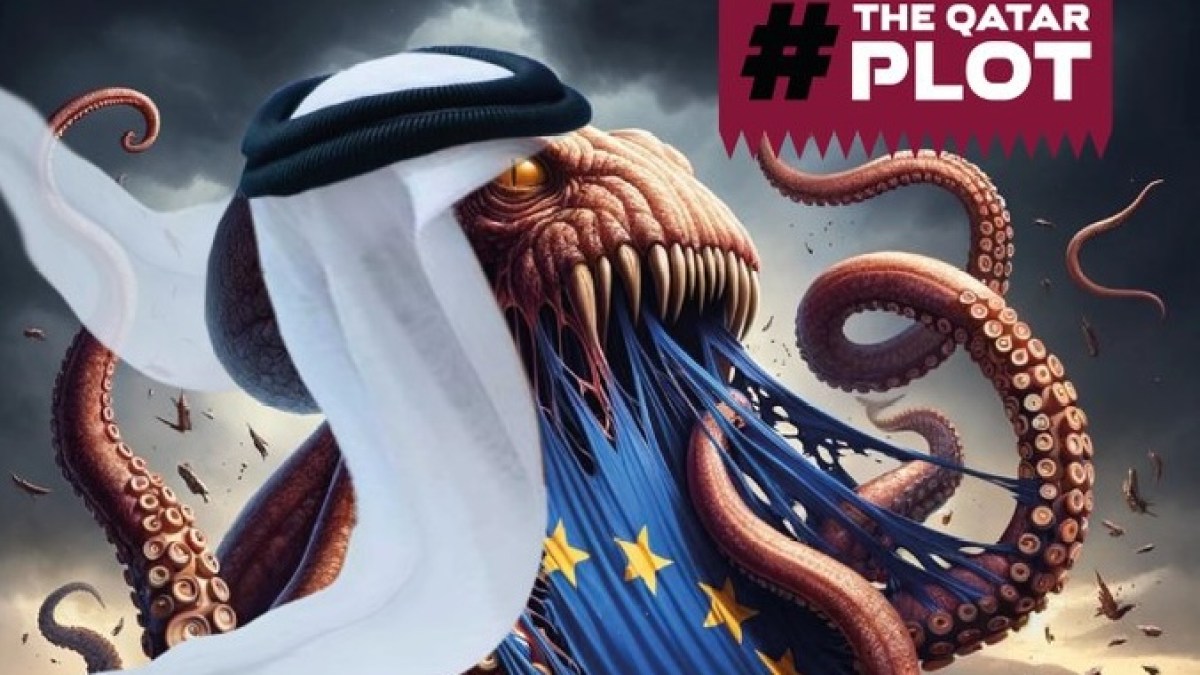
Many breathed a sigh of relief when Marine Le Pen’s far-right National Rally party was unexpectedly beaten by tactical voting in the second round of France’s snap legislative elections earlier this month. But now that the threat of a far-right takeover in France appears to have been averted, people are asking: How exactly did Le Pen come to the brink of victory?
My research into a global influence campaign promoting far-right, anti-Muslim conspiracies suggests the unprecedented support the far-right party received in the July election was not entirely organic.
Together with fellow researcher Sohan Dsouza, we uncovered a massive shadowy social media operation funded by dark money spreading far-right narratives on immigration, Islam and Israel’s war on Gaza all across the globe but particularly in Europe. The operation appears to have provided the far right with additional leverage in this summer’s elections, from the European Parliament elections in June to the French elections in July.
The content promoted by the extensive operation, dubbed “The Qatar Plot”, is believed to have reached a minimum of 50 million people across Facebook, X, YouTube, Telegram and TikTok. On Facebook alone, we found that the campaign spent between $100,000 to $240,000 on ads, and that is a conservative estimate. Based on Meta’s previous public disclosures on such expenditure, this makes The Qatar Plot the largest known Facebook influence operation ever to target EU countries and European elections in terms of ad spend.
From late 2023 through mid-2024, this campaign flooded social media in Europe and beyond with anti-Muslim messaging. Above all else, it peddled the far-right “Great Replacement” narrative, which promotes the idea that global elites are conspiring to replace Europe’s white population with Black and brown people, and particularly Muslims.
In the past, the far right had portrayed Jewish billionaire philanthropist George Soros as the “puppet master” behind this supposed Muslim takeover of Europe. This time around, however, the blame was placed not on Soros, but on the Gulf state of Qatar, reflecting the changing priorities and perceptions of right-wing racists in Europe and the United States.
The campaign spread anti-immigrant and anti-Muslim conspiracies at an unprecedented scale, weaponising hate speech to alter public opinion using several fake NGOs, fraudulent petitions, and hijacked social media accounts among other tactics. It even produced a parody Eurovision song portraying Qatar as the engineer of “Europe’s Islamisation”. The video was later amplified by large far-right accounts. It also unleashed a flood of AI-generated images and videos promoting its xenophobic message. It shared AI-generated Islamophobic cartoons, including images of Qatari “krakens” attacking the EU, on various platforms. None of these images were flagged by Meta as AI-generated, despite the company’s stated policy to do so.
The operation’s scale, and consequent reach, were unprecedented. On Facebook alone, it deployed at least 978 ads across 25 campaign pages, supported by a network of 44 “burner” accounts and reached at least 41 million people. It also accumulated millions of views and interactions on other social media apps, including X, YouTube and TikTok.
Ad data revealed that the campaign was active in France, Germany, Sweden, Spain, Malta, Croatia, the UK and the US. It also targeted Lebanon and Saudi Arabia.
Like all sophisticated influence operations, The Qatar Plot targeted different audiences with different tactics and messages.
In Europe, it shared anti-immigration messages aimed at stoking Islamophobia. Meanwhile in Lebanon, it worked to deepen communal divisions through messages that appeared to be arguing for “peace” while tacitly fuelling sectarian tensions. It promoted a narrative which put the blame for the ongoing escalation in the Middle East solely on Hezbollah and Iran, whitewashing Israel’s war on Gaza, and attempting to drive a wedge between Christian and Shia Muslim communities in Lebanon.
We found that the campaign also engaged in astroturfing in Lebanon, paying for Facebook ads promoting a new Shia political party set up to counter the influence of Hezbollah and Amal Movement in the country.
People behind The Qatar Plot also created a fake front organisation called “Citizens for Human Lives”, which went on to put out a petition on Change.org that called on Qatari Emir’s mother, Her Highness Sheikha Moza bint Nasser, to “exercise her authority for the immediate release of the hostages [held by Hamas in Gaza]”. The petition, which was signed by thousands, was taken down only after an AFP investigation questioned the authenticity and purpose of the campaign.
The campaign further paid for massive ads in New York’s Times Square once again calling on Sheikha Moza to “release the hostages”. It also broadcast an anti-Qatar ad at the Conservative Political Action Conference (CPAC) ahead of former President Donald Trump’s much-anticipated speech.
While the fake organisations it found and petitions it circulated to spread disinformation and alter public perceptions about Muslims and the war on Gaza were undoubtedly harmful and highly alarming, the most concerning aspect of The Qatar Plot was its ability to exploit the vulnerabilities of social media platforms and use them to further its agenda without detection for long periods of time.
Indeed, those behind the operation did not just create a few fake accounts – they stole and repurposed existing ones with alarming efficiency. On Facebook, they hid their identity using a Vietnamese proxy, and paid for their campaign in Vietnamese dong. As a result, despite Facebook taking belated action to limit the reach of such organised disinformation efforts, the campaign ran undetected for months, successfully communicating its anti-Muslim, anti-Qatar and anti-immigration message to many millions. On X too, repurposed old accounts ran ads, accumulating millions of views.
The Qatar Plot was not the only major influence campaign running on social media platforms during this period. An Israeli PR firm, STOIC, also ran a similar campaign, communicating similar messages using similar tactics during the same period.
Following the outbreak of war between Israel and Hamas in October, STOIC started using fake accounts and websites to promote Islamophobia in the US and Canada, while also targeting African-American communities and politicians in the US in an attempt to undermine minority support for Palestinians.
Disturbingly, STOIC was not running a private operation – according to The New York Times, it was hired by Israel’s Ministry of Diaspora Affairs and given some $2m to run this campaign. Since October, the head of the ministry, Amichai Chikli, has increasingly come under scrutiny for his open support for and collaboration with right-wing parties in Europe. He was recently criticised by French President Emmanuel Macron for supporting Marine Le Pen’s National Rally ahead of the French elections.
While we do not yet know who was behind The Qatar Plot, the overlap between its messaging and that of STOIC’s campaign signals a worrying nexus of interests shared by the European far right and Israel – interests that demand the vilification of Muslims and stoking of Islamophobia within white, Christian communities from Europe to the US and Lebanon. Indeed, the messaging of The Qatar Plot aligns perfectly with narratives that are being pushed by the Israeli government which position Israel as a bulwark against Islam’s “spread” to the West.
The shadowy Qatar Plot, like the campaign ran by STOIC, is not simple, run-of-the-mill disinformation. It is targeted social manipulation in wartime that leverages digital platforms to maximise its reach and impact. Someone needs to be held accountable for this extensive, highly organised and well-funded campaign whether it’s the companies that allowed it to flourish, or those who organised it – ideally both. If not, the unchecked proliferation of hate speech and weaponisation of Islamophobia will inevitably lead to more violence, conflict and death. And we’ll see many more divisive, far-right actors, like France’s Le Pen, coming to the brink of electoral victory in Europe and beyond.
The views expressed in this article are the author’s own and do not necessarily reflect Al Jazeera’s editorial stance.
EMEA Tribune is not involved in this news article, it is taken from our partners and or from the News Agencies. Copyright and Credit go to the News Agencies, email news@emeatribune.com Follow our WhatsApp verified Channel





